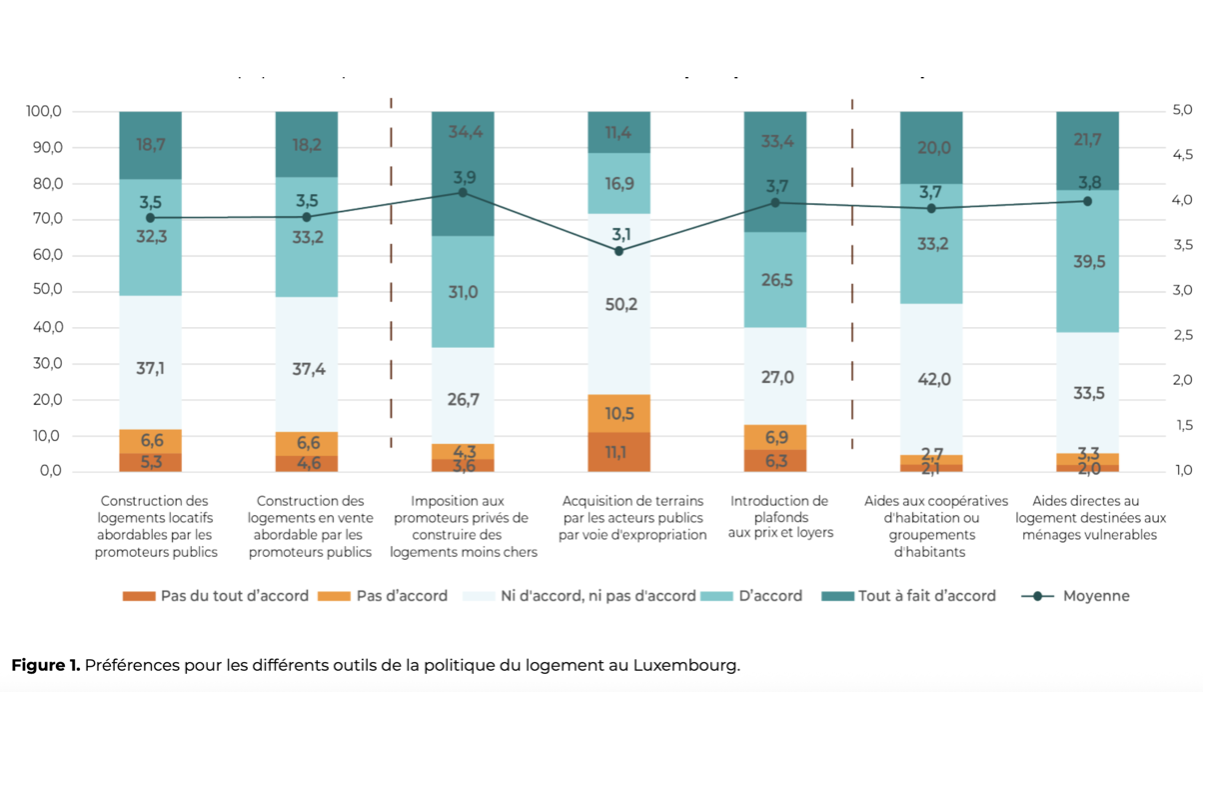 Credit: Luxembourg’s Ministry of Housing and Spatial Planning
Credit: Luxembourg’s Ministry of Housing and Spatial Planning
On Friday 18 July 2025, Luxembourg’s Ministry of Housing and Spatial Planning published Note 42, an analytical report based on data from the 2023 survey “Affordable Housing in Luxembourg.”
The publication examines residents’ preferences and levels of acceptance concerning three key directions in national housing policy (Figure 1):
Strengthening the construction of housing by public developers:
1.1. Construction of affordable rental housing;
1.2. Construction of affordable housing for sale.
Regulation of the private market:
2.1. Requiring private developers to build cheaper housing;
2.2. Acquisition of land by public actors through expropriation;
2.3. Introduction of price caps on sales and rents.
Direct support to residents and their independent initiatives:
3.1. Direct housing subsidies for vulnerable households;
3.2. Support for housing cooperatives or resident groups.
The Ministry reported that while more than half of respondents expressed support for the three main policy directions, significant differences emerged when it came to specific measures, particularly those related to private market regulation. The measure concerning land expropriation, for example, generated “highly polarised responses.” The report highlighted distinct sociodemographic profiles among supporters and opponents: individuals in favour were more likely to be young adults with a basic level of education, from non-European migrant backgrounds, living in rental housing and with a household disposable income below €4,000 per month. Opponents were typically aged 56 or older, of Luxembourgish nationality, with at least one parent born in Luxembourg, homeowners, and with household incomes exceeding €8,000 per month.
Housing tenure status appeared to be the most decisive factor in shaping respondents’ preferences, the Ministry noted. Tenants consistently expressed higher levels of support across all proposed measures. For instance, 74% of tenants supported the introduction of price and rent caps, with only 6% opposed. In contrast, this level of support dropped to 49% among homeowners, 20% of whom opposed the measure. Overall, tenants, individuals from non-EU immigrant backgrounds, low-income households and young adults were more likely to support policy approaches aimed at improving access to housing.
Finally, the Ministry noted three main sources of indecision among respondents. Measures that are less familiar or perceived as sensitive, such as expropriation or support for individual initiatives like housing cooperatives, were more likely to elicit “neutral responses,” particularly among those unfamiliar with these concepts. Indecision was also more prevalent among individuals with lower levels of education or those who found it difficult to assess the “tangible impact” of specific policies on their own circumstances.








